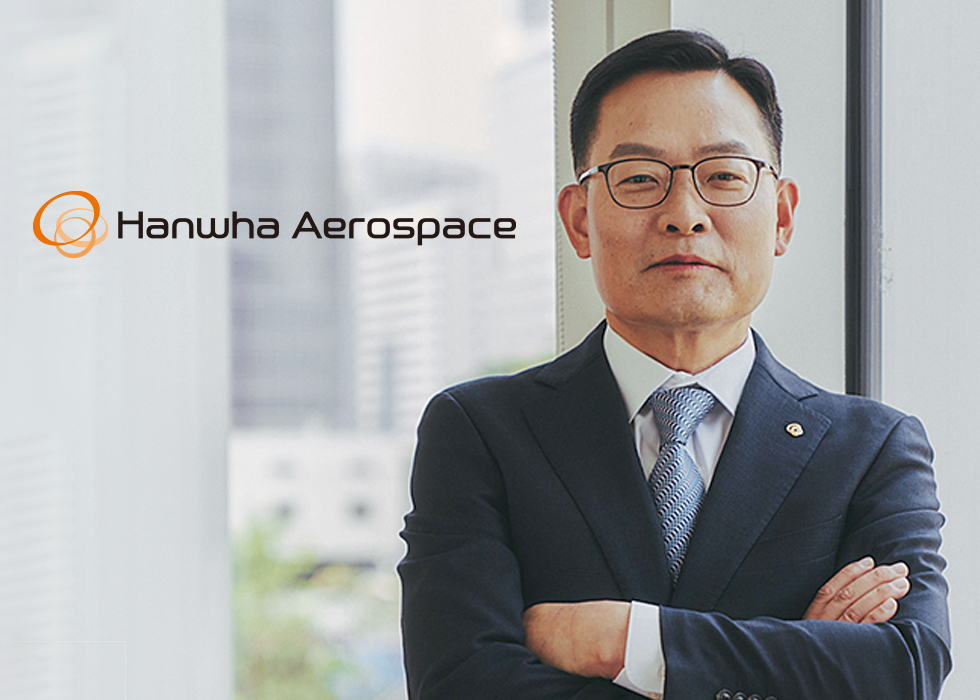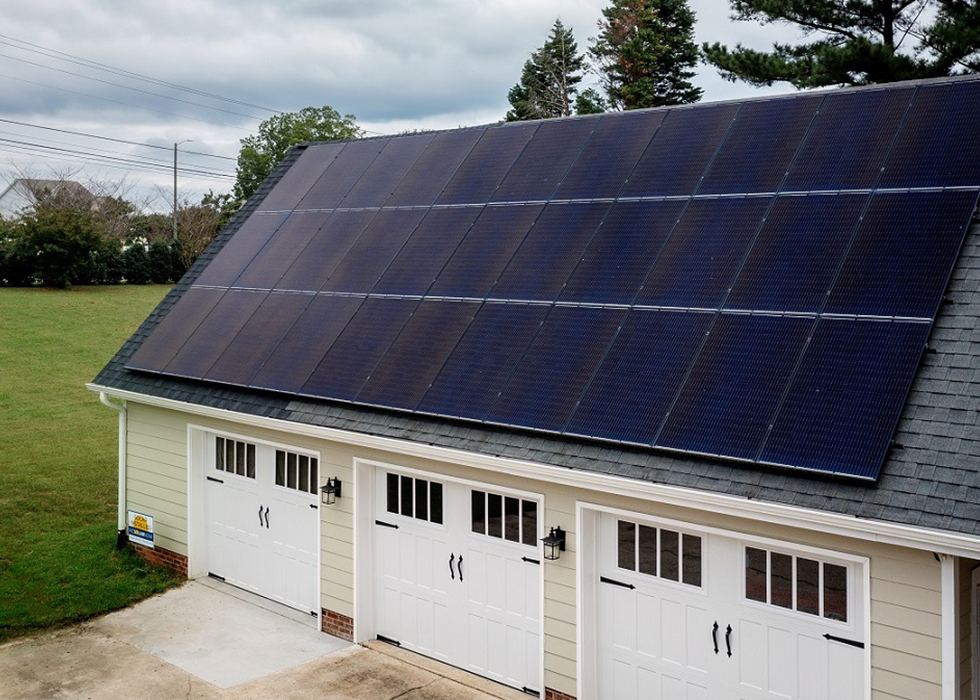Envisioning the Future: How Hanwha Qcells CEO Justin Lee Accelerates the Energy Transition With Innovative Solar Solutions

Introducing the "Envisioning the Future" series, a collection of captivating interviews with the visionaries and changemakers shaping our world today.
In this series, we dive into the mindset of global thought leaders, exploring their remarkable work and groundbreaking initiatives as they pave the way for a brighter tomorrow.
"At the heart of our efforts is our goal of establishing
a complete and clean energy solution that can build a sustainable future.”
As the world grapples with the pressing challenge of climate change, the need for a global energy transition has never been more evident. About 29 percent of electricity currently comes from renewable sources. However, to achieve carbon neutrality goals, the International Renewable Energy Agency (IRENA) estimates that 90 percent of the world’s electricity can and should come from renewable energy by 2050.
In the face of this pressing challenge, Hanwha Qcells, a division of Hanwha Solutions, has emerged as a key player in the solar energy sector. Hanwha Newsroom sat down with Justin Lee, CEO of Hanwha Qcells, to shed light on how the company is spearheading the green energy transition through innovations in solar energy. From breakthrough technologies to strategic partnerships, Justin Lee and Hanwha Qcells are leading the charge to revolutionize the renewable energy landscape.
Powering Sustainable Change
Solar shines as a powerful and sustainable energy solution, offering benefits far beyond electricity generation. With zero carbon emissions, solar power plays an important role in transforming carbon-heavy industries and mitigating the harmful effects of climate change. As a result, both countries and individuals are embracing its ability to strengthen energy security and energy independence, fueling record growth in the solar industry worldwide.
Hanwha Qcells, a global leader in complete clean energy solutions, stands at the forefront of this global energy transition. According to CEO Justin Lee, the company doesn’t just focus on solar module production, but instead takes a more holistic approach that covers the entire solar energy chain. “In other words, we have designed a user-centric service that covers the entire energy lifecycle, from production to consumption,” said Lee.

Building this energy ecosystem wouldn’t be possible without Hanwha Qcells' Georgia production facility. “When it becomes fully operational next year, Hanwha Solutions will become the only firm in North America to cover the entire solar energy value chain, from the raw material of polysilicon to finished solar modules,” explained Lee. This vertical integration will ensure greater control over the production process and enhance Hanwha Qcells’ ability to deliver high-quality and reliable solar products.
Creating a more flexible and reliable energy supply is a top priority for Hanwha Qcells, and the company is exploring new ways to power this change. For instance, Hanwha Qcells is developing energy storage systems (ESS) to stabilize the energy grid and has also formed a strategic partnership with Summit Ridge Energy, providing consumers access to more affordable and eco-friendly energy options. “Through these technologies, Hanwha Qcells allows consumers to more easily adopt and use clean energy,” said Lee.
Innovating for a Sustainable Future
With a strong commitment to innovation and a proven record as a global market leader, Hanwha Qcells recognizes the challenges in accelerating the global energy transition. By investing in solar solutions, Hanwha Qcells is at the forefront of addressing these challenges and driving the adoption of solar energy.
One of the company's primary focuses for investment is on improving solar cell efficiency. For instance, Hanwha Qcells is dedicated to commercializing perovskite tandem cells by 2026. “These will be a game-changer in the solar energy market and will dramatically improve cell efficiency and output,” explained Lee.

Another critical aspect of Hanwha Qcells' approach is the development of distributed energy solutions, which reduce reliance on traditional infrastructure and allow for greater flexibility, reliability, and resilience in energy production, especially during power outages. Hanwha Qcells aims to empower communities and businesses to generate their own clean energy, contributing to energy independence and reducing strain on the grid.
Hanwha Qcells also made a substantial $2.5 billion investment in Georgia, U.S. This is the largest investment in U.S. solar history and the country's only complete and sustainable solar supply chain. “With this investment, Hanwha Solutions will become the first firm to cover all five levels of the solar energy value chain, from the raw material of polysilicon to finished solar modules,” said Lee. By embracing this comprehensive approach, Hanwha Qcells ensures full control over the production process and supply chain, optimizing efficiency, quality, and stability.
Energizing the Renewable Revolution
As Hanwha Qcells continues to grow and evolve, Lee will advocate for Hanwha Qcells’ slogan, “Completely Clean Energy” — a vision that embodies the company’s goal as a global energy brand to supply ecologically and ethically clean energy. "At the heart of our efforts is our goal of establishing a complete and clean energy solution that can build a sustainable future," Lee emphasized.
Looking ahead, Hanwha Qcells has ambitious plans to introduce virtual power plants and AI-based energy management systems. In line with its comprehensive approach, Hanwha Qcells will strive to provide clean energy across the entire solar energy value chain. From producing polysilicon to manufacturing high-quality ingots, wafers, cells, and modules, the company will work to to ensure that every step is aligned with its commitment to sustainability.

Hanwha Qcells remains steadfast in its mission to drive green energy adoption and meet the needs of its users across the entire solar spectrum. “The energy transition does not simply represent a shift in our energy mix,” said Lee. “A genuine energy transition requires the fusion of continuing technological innovation and infrastructure.” Through comprehensive, next-generation energy solutions, Hanwha Qcells and CEO Justin Lee will continue illuminating the path toward a brighter future.
Get the latest news about Hanwha, right in your inbox.
Fields marked with * are mandatory.
- Non-employee
- Employee





